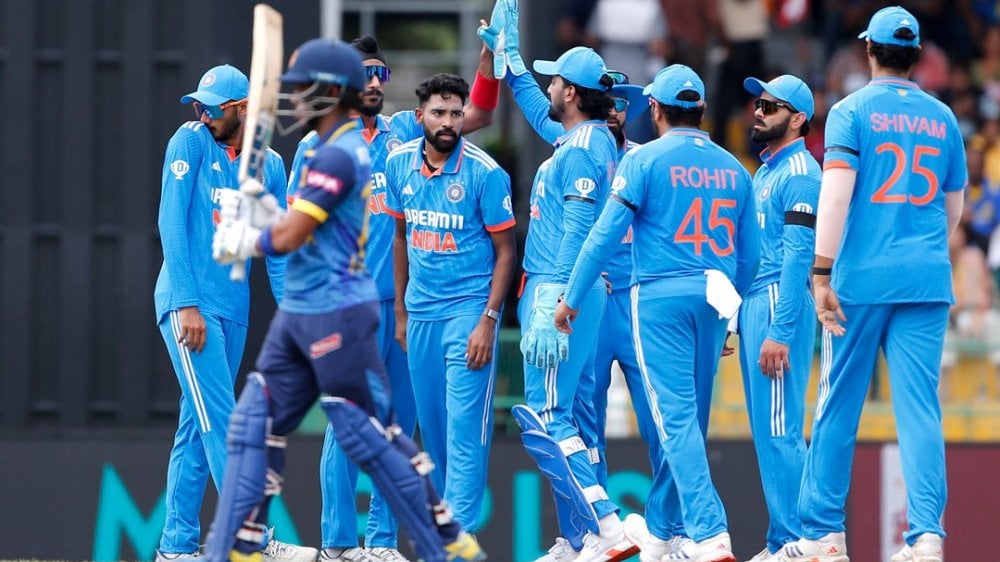
A new controversy has emerged in the ODI series between India and Sri Lanka. According to media reports, ICC officials in Sri Lanka made a mistake for which Team India had to suffer the consequences. Know more about the matter?
The ODI series between India and Sri Lanka has been great so far. On Sunday, Sri Lanka defeated Team India in the second ODI and the first ODI match ended in a tie. But now a big scandal has come to light regarding this ODI series. According to media reports, if the third ODI match between India and Sri Lanka is tied, then it should be played in a super over. Now the question is why was the super over not conducted after the first ODI match ended in a tie? An official of the Sri Lanka Cricket Board has given a shocking statement. In which he said that there should have been a super over in the first ODI match as well but it did not happen.
What happened in the first ODI?
In the first ODI between India and Sri Lanka, Sri Lanka batted first and scored 230 runs. In response to which Team India could score only 230 runs and the match was tied. The big thing is that according to ICC rules, a super over should have been played after the match was tied, but ICC match referee Ranjan Madugalle did not do so. Not only this, questions are also raised on the field umpire and third-fourth umpire. The question is whether these officials were also unaware of the super over rule in ODIs?
What is the ICC rule if the match is tied in ODI?
According to ICC rules, if both teams score the same score then a super over should be played. If the super over is also tied, then the super over should continue until a winner is found. It is clearly written in the ICC rules that a super over should be played even if the ODI match is tied but this did not happen in Colombo. Due to which Team India has suffered a loss in a way. Team India could have won the first T20 super over and if this had happened then today it would not have been behind 0-1 in the series. Now it remains to be seen how the ICC reacts to this big mistake.
 look news india
look news india